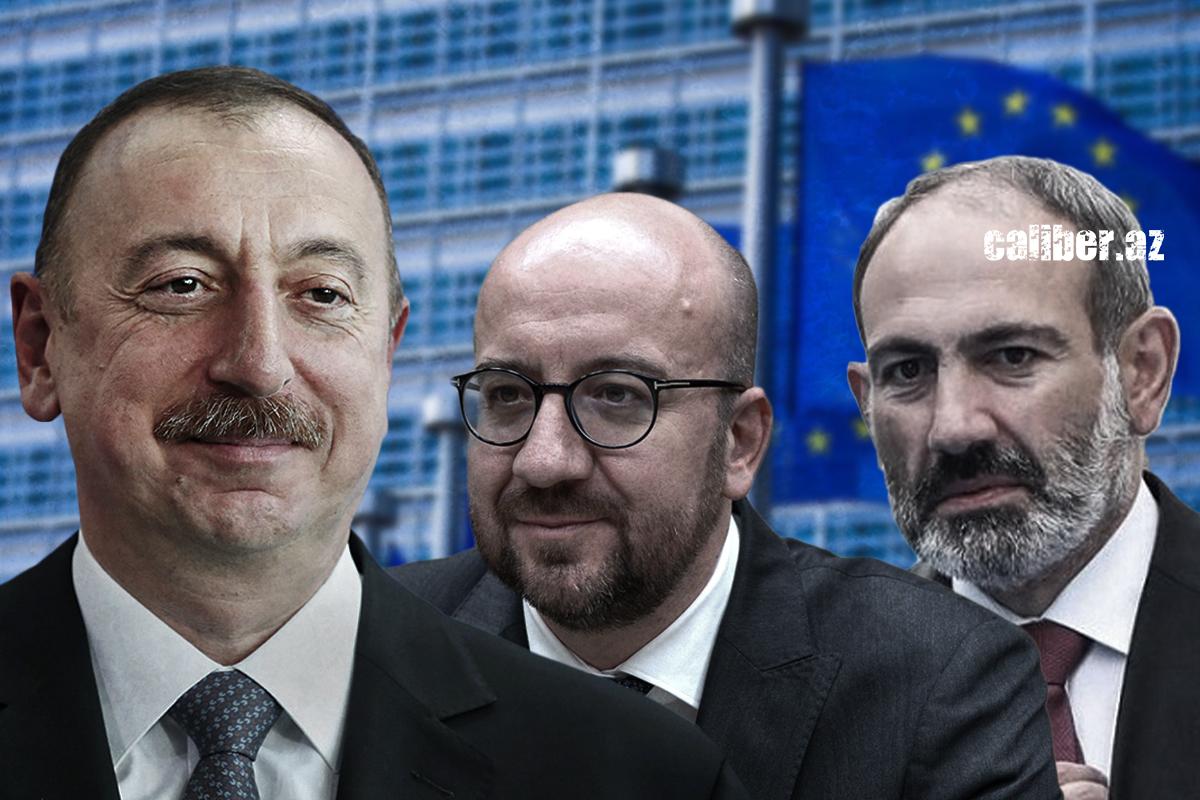European Council's president keeps hitting Yerevan No status, no "people of Karabakh"
The press secretary of the President of the European Council of the EU issued a statement clarifying Charles Michel's statement on the results of the trilateral meeting with the leaders of Azerbaijan and Armenia in Brussels.
"In the context of recent tensions between Armenia and Azerbaijan, President Charles Michel reaffirmed the EU's commitment to deepening cooperation with both countries to develop the South Caucasus for the security, stability, peace, and prosperity of the region and all people living in it.
He welcomed the first historic meeting of the border commissions of both countries on May 24, and stressed the paramount importance of stability and security along the state border between Armenia and Azerbaijan as the delimitation process continues.
More broadly, President Michel emphasized the importance of resolving all outstanding issues for the sustainable normalization of relations between Armenia and Azerbaijan, including advancing discussions on a future peace treaty and addressing the root causes of the conflict. According to President Michel, all the core issues that led to the first Nagorno-Karabakh war, as well as to the renewed fighting in 2020, must be resolved by all parties concerned to create the conditions for lasting and just peace.
As with any legacy of conflict, the terminology is particularly sensitive in this context. President Michel's statement on the outcome of the May 22 leaders' meeting should not be interpreted as an endorsement of a predetermined outcome to the discussions in any case. What ultimately matters most is that all issues are addressed comprehensively; this includes the rights and security of the entire population.

The issue of communications was specifically discussed in Brussels on May 22 in order to enhance the possibilities for unblocking the region. In this context, both sides confirmed the absence of extraterritorial claims regarding future transport infrastructure. Suggestions to the contrary are regrettable.
Finally, President Michel underlined the need to prepare the population for peace and the paramount role of public discourse in this regard. He welcomed the steps taken by the leadership in Yerevan and Baku and expressed his commitment to participating in good faith in ensuring an atmosphere conducive to the continuation of talks, as well as the EU's readiness to step up its support for confidence-building measures.
"EU Special Representative Toivo Claar will travel to the region in the coming days to follow up on all aspects of the talks," the press secretary of the EU Council President said in a statement.
In this context, it should be recalled that Armenian Prime Minister Nikol Pashinyan said on May 25, speaking during a government hour in the National Assembly, that "Yerevan and Baku have not reached an agreement on the wording of the statement following the talks in Brussels." "In the context of possible peace treaty negotiations, Baku presented its 5 proposals, and Yerevan presented its observations and agenda. Negotiations should be conducted on this basis. Our proposed principles include the security and rights of Nagorno-Karabakh Armenians, as well as clarification of the final status", Pashinyan said, adding that since the sides have never agreed on the wording during the discussions, the head of the European Council "decided to express what he thought would include as many elements reflecting the positions of both sides as possible".
However, as we can see from the statement of the representative of Michel, the European Council did not play along with the Armenian side in order to save Pashinyan's face. In the text again, like that of May 22, there is not a single reference to "Nagorno-Karabakh", the defunct OSCE MG, and the "people of Artsakh or Nagorno-Karabakh" invented by the Armenian side. Instead, it mentions the population, that is, the ethnic Armenian population, which is one of the ethnic groups in our state. The statement of Michel's spokesman once again confirms the correctness of official Baku's position.








